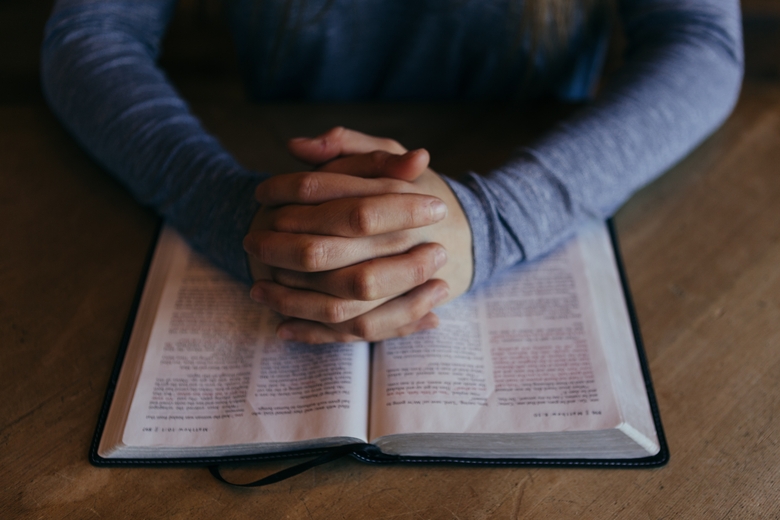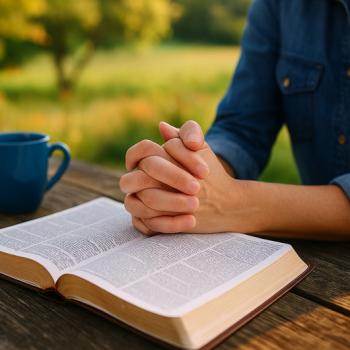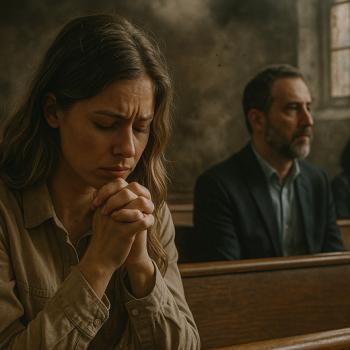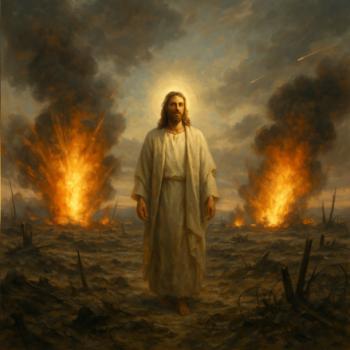
Christianity and Catholicism are two closely related but distinct branches of the Christian faith. While both share common foundational beliefs, they also exhibit significant differences. Here are some key distinctions between the two:
Religious Authority in Christianity and Catholicism
Religious authority plays a pivotal role in shaping the beliefs, practices, and doctrinal interpretations of Christian faith traditions. While both Christianity and Catholicism share a foundation in Christian teachings, they differ significantly in how they perceive and exercise religious authority.
Christianity:
In Christianity, authority is primarily rooted in the Bible, which is universally regarded as the holy scripture. The Bible, composed of the Old and New Testaments, is seen as the inspired word of God. However, it’s important to note that various Christian denominations may interpret the Bible differently, leading to a wide range of theological perspectives and doctrinal variations.
Within Christian denominations, pastors, theologians, and scholars may engage in exegetical studies to understand and interpret the scriptures. These interpretations can result in differences in religious beliefs, traditions, and practices among Christian communities.
Catholicism:
Catholicism, on the other hand, places religious authority not solely on the Bible but also on church tradition and the teaching authority of the Pope and the Magisterium (the teaching authority of the Church). The Pope, who serves as the Bishop of Rome and the head of the Roman Catholic Church, is considered the spiritual leader of the Catholic Church and the highest authority on matters of faith and doctrine.
In Catholicism, church tradition is seen as an essential complement to the scriptures. The teachings and practices passed down through centuries hold significant weight in shaping Catholic doctrine and liturgy. The Magisterium, consisting of bishops in communion with the Pope, has the responsibility to interpret and clarify matters of faith and morals, ensuring doctrinal consistency across the Catholic Church.
The authority of the Pope in Catholicism is seen as a direct link to the authority given to the Apostle Peter by Jesus Christ, as described in the New Testament. This belief in the Pope’s authority to speak infallibly on matters of faith and morals distinguishes Catholicism from other Christian traditions.
In summary, while both Christianity and Catholicism share the foundational belief in the Bible, they differ in their approach to religious authority. Christianity places primary emphasis on the Bible, allowing for diverse interpretations, while Catholicism combines the Bible with church tradition and the authority of the Pope and the Magisterium to guide its doctrinal and theological perspectives. These distinctions have significant implications for the faith and practices of each tradition.
Worship Practices in Christianity and Catholicism
Worship is a fundamental aspect of religious life, and it serves as a way for believers to express their devotion and connect with the divine. While both Christianity and Catholicism share the act of worship, they exhibit distinct approaches and practices in their religious services.
Christianity:
In Christianity, worship practices can vary widely among denominations, reflecting the diversity within the faith. Common elements, however, provide a sense of unity among Christian worship services. These elements typically include:
– Prayer: Prayer is a central component of Christian worship. Believers use prayer to communicate with God, seek guidance, express gratitude, and make petitions.
– Hymn Singing: Hymn singing is a communal expression of faith and praise. Christians often sing hymns that convey theological themes and spiritual messages.
– Sermons: Christian worship services commonly feature sermons or homilies. Clergy or pastors deliver these messages, which expound on biblical teachings, offer spiritual guidance, and provide insights into the faith.
– Eucharist or Communion: Many Christian denominations celebrate the Eucharist or Communion, though the frequency and theological interpretation can vary. During this rite, bread and wine are shared, symbolizing the body and blood of Jesus Christ, along with His sacrifice on the cross.
Catholicism:
Catholic worship, in contrast, follows a structured liturgy, with the Mass being the central act of Catholic worship. Several distinctive features characterize Catholic worship practices:
– The Mass: The Mass is a sacred and highly structured liturgical service in Catholicism. It consists of various parts, including the Liturgy of the Word (featuring readings from the Bible) and the Liturgy of the Eucharist (the celebration of the Eucharist or Communion).
– Transubstantiation: A unique aspect of Catholic worship is the belief in transubstantiation. Catholics hold that during the Eucharistic celebration, the bread and wine consecrated by the priest become the actual body and blood of Jesus Christ. This belief is central to Catholic theology and sets Catholic worship apart from many other Christian denominations.
– Liturgy and Ritual: Catholic worship is characterized by liturgical rituals, vestments, and a highly choreographed order of worship. The use of symbols, such as candles, incense, and sacred vessels, is common in Catholic liturgy.
Hierarchy and Clergy in Christianity and Catholicism
The structure of religious hierarchy and clergy within a faith tradition can greatly influence its organizational dynamics and the roles of its religious leaders. Christianity and Catholicism exhibit distinctive approaches to hierarchy and clergy, reflecting their respective beliefs and traditions.
Christianity:
In Christianity, the organizational structure varies widely among denominations, and there is often an emphasis on local autonomy. Here are some common features:
– Decentralized Structure: Many Christian denominations, particularly Protestant and Evangelical groups, adopt a decentralized structure. This means that individual congregations or local churches have a significant degree of autonomy in their decision-making processes, including the selection and oversight of clergy.
– Pastors, Ministers, or Priests: Christian denominations may use different titles for their religious leaders, such as pastors, ministers, priests, or clergy. These leaders can have diverse roles and responsibilities, depending on the specific denomination and congregation.
– Varied Functions and Authority: The functions and authority of clergy in Christianity can vary widely. Some Christian leaders focus on pastoral care, while others may have a more administrative role within their congregations. The extent of authority granted to clergy members is often determined by the governance structure of the particular denomination or local church.
Catholicism:
Catholicism, in contrast, adheres to a hierarchical structure with a well-defined clergy system. Here are the key elements of the Catholic hierarchical system:
– Ordained Clergy: Catholicism has an ordained clergy, which includes bishops, priests, and deacons. Bishops are the highest-ranking clergy and are responsible for overseeing geographic regions known as dioceses. They have the authority to ordain priests and administer sacraments like confirmation and ordination.
– Parish Priests: Priests serve at the parish level and administer religious rites, including the celebration of the Eucharist and the sacrament of reconciliation (confession). They play a central role in the spiritual life of the local Catholic community.
– Deacons: Deacons are ordained ministers who assist priests and bishops in various pastoral duties. They may serve in roles related to charity and social justice, among other responsibilities.
– The Pope: At the pinnacle of the Catholic hierarchy is the Pope, who is considered the Vicar of Christ on Earth and the spiritual leader of the Roman Catholic Church. The Pope holds ultimate authority on matters of faith, doctrine, and Church governance.
Sacraments in Christianity and Catholicism
Sacraments are sacred rituals or practices within Christianity that hold significant spiritual and symbolic meaning for believers. These sacraments serve as outward signs of inward grace and are integral to the religious life of Christians. While many Christian denominations share the recognition of certain sacraments, there are notable differences, particularly between Christianity as a whole and Catholicism.
Christianity:
In Christianity, the recognition and practice of sacraments can vary widely among denominations. While most Christian traditions acknowledge two fundamental sacraments—Baptism and Communion (also known as the Lord’s Supper or Eucharist)—the significance and practices of these sacraments may differ:
– Baptism: Baptism is recognized by nearly all Christian denominations and is considered the initiation into the Christian faith. It typically involves the pouring or immersion of water as a symbol of purification and rebirth into the Christian community. Baptism is seen as a way to cleanse the individual from sin and mark their commitment to Christ.
– Communion (Eucharist): Communion is another widely recognized sacrament in Christianity. It involves the symbolic consumption of bread and wine, representing the body and blood of Jesus Christ. The act of taking Communion is a remembrance of Christ’s sacrifice on the cross and is often associated with spiritual nourishment and unity among believers.
Catholicism:
Catholicism, in contrast, recognizes seven sacraments, each holding a distinct place in the spiritual life of Catholics:
– Baptism: Baptism in Catholicism is the sacrament of initiation, marking the cleansing of original sin and the entry into the Christian community.
– Eucharist (Holy Communion): The Eucharist is the central sacrament in Catholicism, where bread and wine are believed to become the actual body and blood of Jesus Christ through transubstantiation.
– Confirmation: Confirmation is a sacrament that strengthens the faith of Catholics and marks their full initiation into the Church. It often involves the laying on of hands by a bishop.
– Reconciliation (Confession): This sacrament allows Catholics to confess their sins to a priest and receive absolution, reconciling them with God and the Church.
– Anointing of the Sick (Last Rites): This sacrament offers spiritual healing and comfort to the sick and those approaching the end of life.
– Marriage (Holy Matrimony): Marriage is a sacrament in Catholicism that sanctifies the union of a man and a woman.
– Holy Orders: Holy Orders is the sacrament through which individuals are ordained as bishops, priests, or deacons, enabling them to serve the Church in specific roles.
Religious Practices in Christianity and Catholicism
Religious practices and beliefs are central to the expression of faith in Christianity, encompassing a wide range of rituals, doctrines, and moral teachings. While Christianity as a whole shares certain foundational beliefs, the interpretation and emphasis on these practices can vary significantly among denominations. Catholicism, as one prominent Christian tradition, stands out with its distinctive approach to religious practices and teachings.
Christianity:
Christianity is a diverse faith tradition that encompasses a multitude of denominations and theological perspectives. As a result, religious practices and beliefs within Christianity can vary widely:
– Doctrinal Variations: Different Christian denominations may hold varying theological beliefs on topics such as the nature of God, the role of salvation, and the interpretation of the Bible. These doctrinal differences often influence religious practices and liturgy.
– Liturgy and Worship: Christian worship services vary in style and format. Some denominations have highly structured liturgies with prescribed rituals, while others have more spontaneous or contemporary worship styles. Worship practices, including hymn selection and the Eucharist, can differ among denominations.
– Moral Teachings: Moral and ethical teachings within Christianity can also differ. While there are commonalities such as the Ten Commandments, specific stances on issues like contraception, divorce, and social justice may vary among denominations.
– Church Governance: The organizational structure of Christian denominations varies, ranging from hierarchical systems with bishops and councils to congregational governance, where local churches have significant autonomy.
Catholicism:
Catholicism distinguishes itself within the broader Christian tradition by having a unified set of doctrines and teachings established by the Magisterium, the teaching authority of the Church. Here are some key aspects of religious practices in Catholicism:
– Doctrinal Unity: Catholicism emphasizes doctrinal unity across its global community. The teachings of the Magisterium, including the Pope and the bishops in communion with him, provide clear and authoritative guidance on matters of faith and morals.
– Sacraments: Catholicism places a strong emphasis on the seven sacraments, which are integral to the religious life of Catholics. These rituals provide a structured framework for spiritual growth and nourishment.
– Moral Teachings: The Catholic Church offers comprehensive moral teachings and guidelines on various ethical issues, such as contraception, divorce, and the sanctity of life. These teachings are consistent across the Catholic Church.
– Liturgical Consistency: Catholic worship follows a structured liturgy, particularly during the Mass. The consistency in liturgical practices ensures a uniform spiritual experience for Catholics worldwide.
– Church Hierarchy: Catholicism has a clear hierarchical structure, with the Pope as the highest authority and bishops overseeing dioceses. This centralization helps maintain doctrinal consistency.














